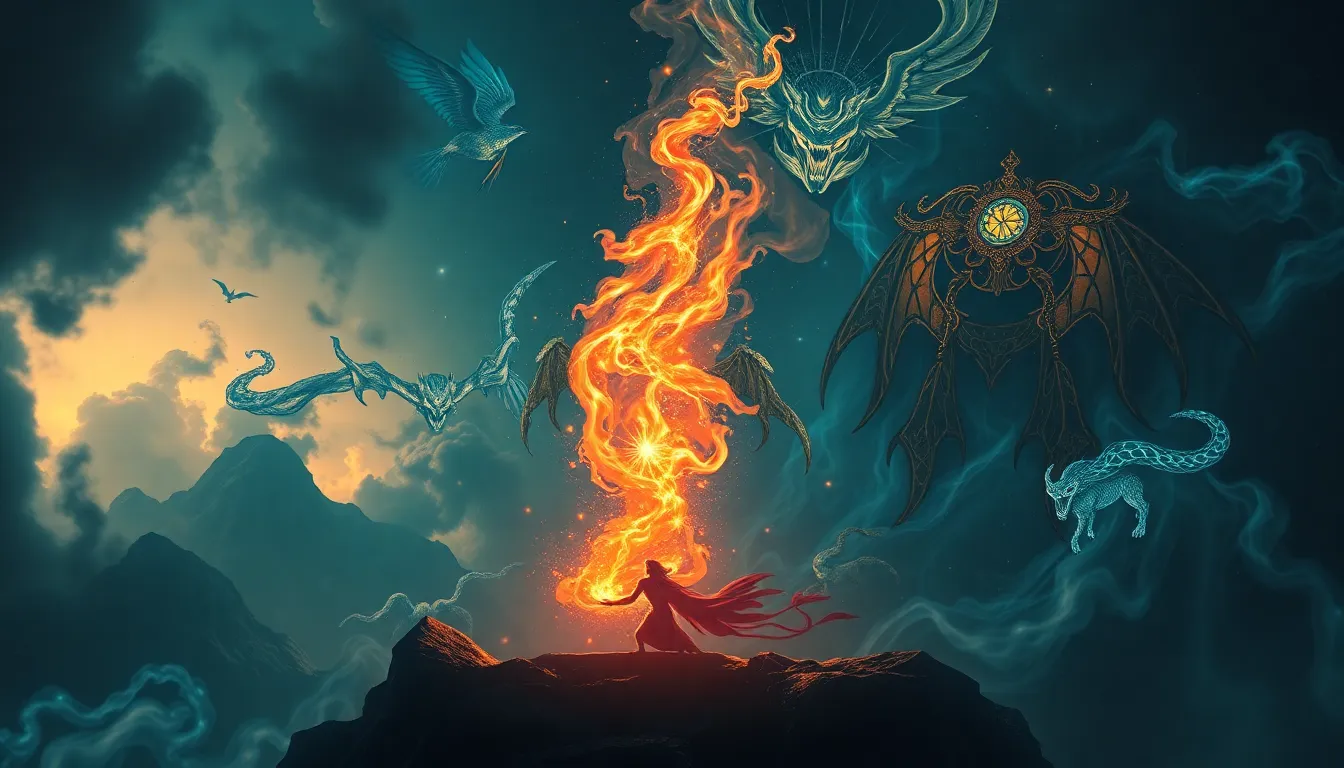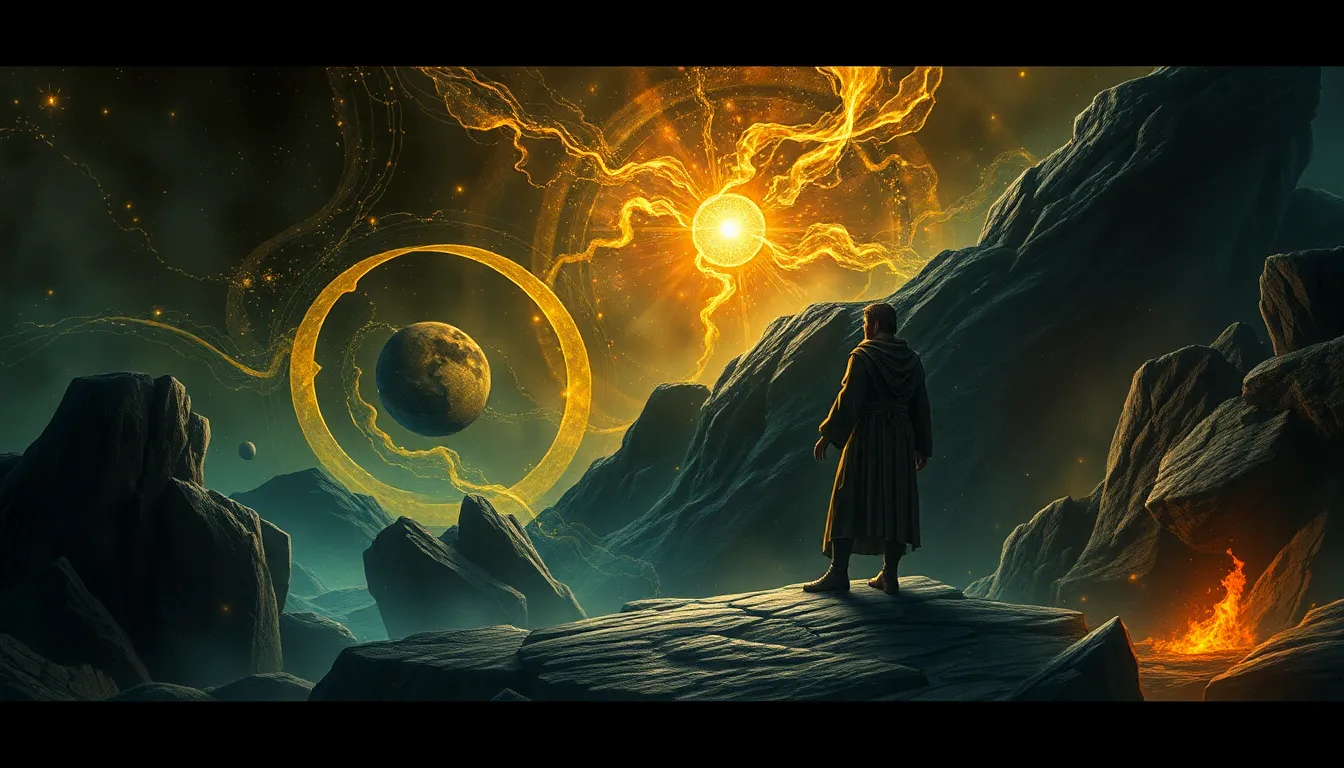The Alchemy of Change: Transformative Myths That Ignite Imagination
1. Introduction to Transformative Myths
Myths have been an integral part of human culture, serving as a lens through which we understand our existence and the world around us. At their core, myths are traditional stories that explain the unexplainable, convey moral lessons, and provide a framework for cultural norms. Transformative myths, in particular, focus on the theme of change and evolution, illustrating how individuals and communities can undergo profound transformations.
This article explores the significance of transformative myths in shaping human experience, their role in personal and societal change, and their enduring relevance in our contemporary lives.
2. The Role of Myths in Personal and Collective Change
Myths play a crucial role in shaping both individual identities and collective societal values. They provide narratives that help people make sense of their experiences and aspirations. Through the stories of gods, heroes, and ordinary individuals, myths offer models of behavior, guiding principles, and a sense of belonging.
- Identity Formation: Myths help individuals understand their place in the world and their connection to others.
- Societal Values: They reflect and reinforce the values and beliefs of a culture, shaping the moral compass of communities.
The psychological impact of these narratives can be profound. Transformative stories can encourage individuals to embrace change, confront challenges, and develop resilience in the face of adversity.
3. Archetypes of Transformation in World Mythologies
Across various cultures, certain archetypes emerge consistently in transformative myths. These archetypes represent fundamental human experiences and behaviors that resonate universally:
- The Hero: Embodies courage and the journey of self-discovery, often facing trials that lead to personal growth.
- The Trickster: Challenges norms and expectations, facilitating change through disruption and creativity.
- The Sage: Represents wisdom and guidance, often aiding others in their transformative journeys.
Examples from different cultures illustrate these archetypes:
- Greek Mythology: The story of Hercules showcases the Hero’s journey through trials to achieve redemption.
- Hindu Mythology: The tale of Lord Rama and his quest to rescue Sita reflects themes of duty and transformation.
- Indigenous Mythologies: Many Indigenous stories feature Trickster figures that teach important life lessons through their mischief.
4. The Process of Alchemical Change: From Base to Gold
The metaphor of alchemy—transforming base metals into gold—serves as a powerful symbol for personal transformation. In many myths, individuals undergo a process of change that can be broken down into several stages:
- Call to Adventure: The protagonist is prompted to embark on a journey of transformation.
- Trials and Challenges: The individual faces obstacles that test their resolve and character.
- Rebirth: A pivotal moment of change occurs, leading to a newfound understanding or identity.
This alchemical process is not only central to myths but also mirrors the transformations people undergo in their own lives, showcasing resilience and the capacity for growth.
5. Case Studies of Transformative Myths
Two prominent myths exemplifying transformative narratives are the story of Persephone and the journey of the Buddha.
- The Story of Persephone: Persephone’s descent into the Underworld and subsequent return symbolizes the cycles of life, death, and rebirth. This myth teaches the importance of embracing change and the duality of existence.
- The Buddha’s Journey: Siddhartha Gautama’s transformation from a sheltered prince to the enlightened Buddha illustrates the quest for understanding and the overcoming of suffering through personal transformation.
These myths offer lessons that resonate with contemporary audiences, reminding us of the importance of resilience and the potential for renewal in our own lives.
6. The Intersection of Myth and Modern Psychology
Transformative myths have a profound connection with modern psychological theories, particularly those of Carl Jung. Jungian psychology explores the significance of archetypes and the collective unconscious, where myths serve as reflections of shared human experiences.
Myths can be therapeutic tools in personal development, allowing individuals to engage with their inner narratives and confront their challenges through symbolic stories. This therapeutic application of myth can help individuals find meaning, process emotions, and foster personal growth.
7. Myths as Catalysts for Social Change
Throughout history, myths have inspired social movements and collective action. They provide a narrative framework that galvanizes communities and encourages individuals to strive for social justice and change.
- Historical Examples: Myths surrounding figures like Joan of Arc or the abolition of slavery have inspired movements that sought to challenge prevailing injustices.
- Storytelling as Empowerment: The ability to share and retell these myths fosters a sense of community and shared purpose, motivating individuals to take action.
8. The Creative Power of Myths in Art and Literature
Myths continue to inspire artists, writers, and creators across disciplines. They provide rich narratives and themes that resonate on both personal and universal levels.
- Influential Works: Classic literature, such as Homer’s “The Iliad,” and modern adaptations, such as Neil Gaiman’s “American Gods,” draw heavily on transformative myths.
- Artistic Expression: Visual artists often incorporate mythological themes to explore human emotions, identity, and the complexities of existence.
9. Reinterpreting Myths for Today’s Challenges
As societies evolve, so too must the myths that guide them. There is a pressing need for modern reinterpretations of traditional myths to address contemporary issues such as climate change and social inequality. New narratives can offer fresh perspectives and solutions to today’s challenges.
For instance, reimagining the myth of Prometheus can serve as a metaphor for environmental stewardship, emphasizing the importance of innovation and responsibility in the face of ecological crisis.
10. Conclusion: The Ongoing Journey of Transformation
The transformative power of myths is a testament to their enduring relevance in both personal and societal contexts. They provide the narratives that guide us through change, inspire our creativity, and foster community.
As we continue our journeys of transformation, it is essential to engage with these myths, reinterpret them for our times, and even create new narratives that reflect our experiences. By doing so, we can harness the alchemy of change and ignite our imaginations, paving the way for a brighter future.



